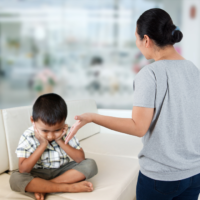Twin study
-

Research Review: The effect of perinatal interventions on parent anxiety, infant socio-emotional development and parent-infant relationship outcomes: A systematic review
Open Access paper from JCPP Advances – “This review primarily aimed to examine the efficacy of perinatal interventions on parent anxiety, infant socio-emotional development/temperament, and parent-infant relationship outcomes. Secondarily, the review sought to understand how interventions focused principally on one member of the dyad affected the outcomes of the other, and which intervention components were common to successful interventions”. Celia G. Smith et al.
Read more -

Guest Editorial: Overview, implications, and directions of twin design research exploring neurodevelopmental conditions
Open Access paper from JCPP Advances – “We included 26 studies that investigated monozygotic (MZ) twin pairs discordant for ASD and sought to explore biological mechanisms and phenotypic presentations associated with non-shared environment”. Lynnea Myers and Sven Bölte
Read more -

Mother’s and children’s ADHD genetic risk, household chaos and children’s ADHD symptoms: A gene–environment correlation study
Open Access paper from the JCPP – “Chaotic home environments may contribute to children’s attention-deficit hyperactivity disorder (ADHD) symptoms. However, ADHD genetic risk may also influence household chaos”. Jessica C. Agnew-Blais (pic) et al.
Read more -

Genetic and environmental influences on temperament development across the preschool period
Paper from the JCPP – “This is the first study to examine genetic and environmental sources of developmental growth in three temperament dimensions: surgency, negative affectivity, and effortful control, during the preschool period”. Chang Liu et al.
Read more -

Environmental factors linked with identifying as a sexual minority may increase suicidality risk
Adolescents who identify as a sexual minority (e.g., gay/lesbian, bisexual) are at an increased risk for suicidality compared to their heterosexual counterparts.1 Until now, inherent limitations in study design has meant that the extent of this association has been unclear.
Read more -

Is aggression linked with academic performance in young people?
A new study published in the Journal of Child Psychology and Psychiatry has investigated the association between aggression and academic performance in >27,000 young people enrolled in four twin cohorts comprising the ACTION consortium.
Read more -

Are autistic behaviours a trait or a state of anorexia nervosa?
Anorexia nervosa (AN) and autism spectrum disorder (ASD) seem to co-occur more frequently than would be expected by chance.1,2 Yet because most studies investigating the nature of this co-occurrence have used a retrospective design, where the data are prone to recall bias, we don’t know whether the elevation of autistic traits in AN is present from childhood or rather from AN onset.
Read more -

Poor sleep quality in adolescence might contribute to poor psychological functioning
Sleep problems affect up to 25% adolescents and have frequently been associated with psychopathology. Now, Marije Vermeulen and colleagues have investigated whether short and/or problematic sleep truly contributes to psychological functioning.
Read more -

Genetic and environmental influences on callous-unemotional traits vary with age
Research on callous-unemotional (CU) traits explores the relative importance of genetic versus environmental influences on the initial risk and trajectory.
Read more -

Shared genetic risk underlies the co-occurrence of ADHD and other psychiatric symptoms
Data from twin studies suggest that the co-occurrence of ADHD with other psychiatric disorders is due, in part, to shared genetic risks.
Read more